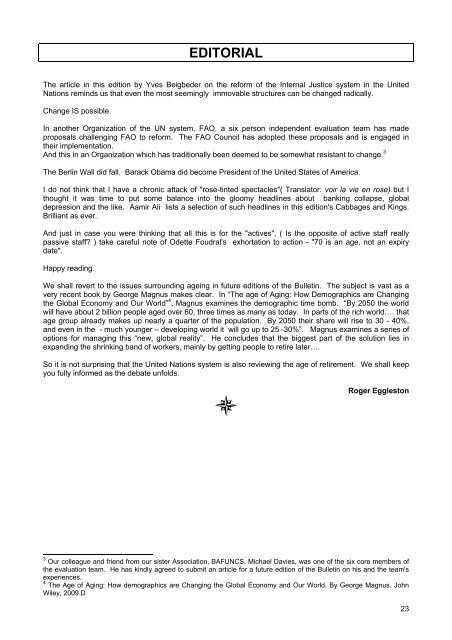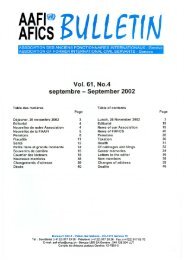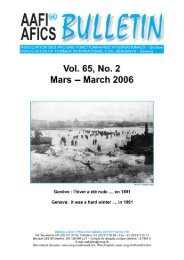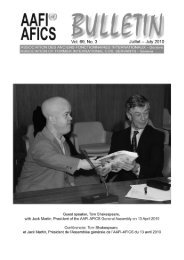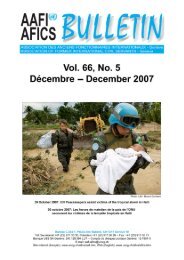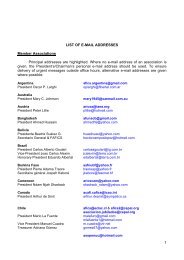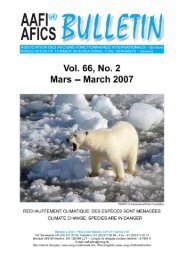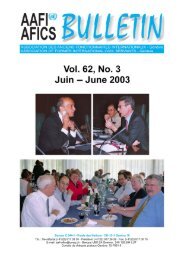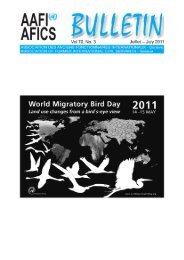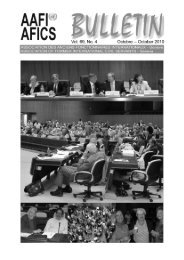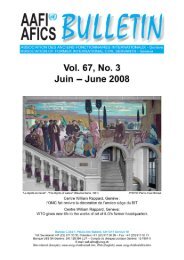VOL. 68, NO. 2 - AAFI-AFICS, Geneva - UNOG
VOL. 68, NO. 2 - AAFI-AFICS, Geneva - UNOG
VOL. 68, NO. 2 - AAFI-AFICS, Geneva - UNOG
Create successful ePaper yourself
Turn your PDF publications into a flip-book with our unique Google optimized e-Paper software.
EDITORIAL<br />
The article in this edition by Yves Beigbeder on the reform of the Internal Justice system in the United<br />
Nations reminds us that even the most seemingly immovable structures can be changed radically.<br />
Change IS possible.<br />
In another Organization of the UN system, FAO, a six person independent evaluation team has made<br />
proposals challenging FAO to reform. The FAO Council has adopted these proposals and is engaged in<br />
their implementation.<br />
And this in an Organization which has traditionally been deemed to be somewhat resistant to change. 3<br />
The Berlin Wall did fall. Barack Obama did become President of the United States of America.<br />
I do not think that I have a chronic attack of "rose-tinted spectacles"( Translator: voir la vie en rose) but I<br />
thought it was time to put some balance into the gloomy headlines about banking collapse, global<br />
depression and the like. Aamir Ali lists a selection of such headlines in this edition's Cabbages and Kings.<br />
Brilliant as ever.<br />
And just in case you were thinking that all this is for the "actives", ( Is the opposite of active staff really<br />
passive staff? ) take careful note of Odette Foudral's exhortation to action - "70 is an age, not an expiry<br />
date".<br />
Happy reading.<br />
We shall revert to the issues surrounding ageing in future editions of the Bulletin. The subject is vast as a<br />
very recent book by George Magnus makes clear. In “The age of Aging: How Demographics are Changing<br />
the Global Economy and Our World” 4 , Magnus examines the demographic time bomb. “By 2050 the world<br />
will have about 2 billion people aged over 60, three times as many as today. In parts of the rich world…. that<br />
age group already makes up nearly a quarter of the population. By 2050 their share will rise to 30 - 40%,<br />
and even in the - much younger – developing world it will go up to 25 -30%”. Magnus examines a series of<br />
options for managing this “new, global reality”. He concludes that the biggest part of the solution lies in<br />
expanding the shrinking band of workers, mainly by getting people to retire later….<br />
So it is not surprising that the United Nations system is also reviewing the age of retirement. We shall keep<br />
you fully informed as the debate unfolds.<br />
Roger Eggleston<br />
3 Our colleague and friend from our sister Association, BAFUNCS, Michael Davies, was one of the six core members of<br />
the evaluation team. He has kindly agreed to submit an article for a future edition of the Bulletin on his and the team's<br />
experiences.<br />
4 The Age of Aging: How demographics are Changing the Global Economy and Our World. By George Magnus. John<br />
Wiley, 2009.D<br />
23


